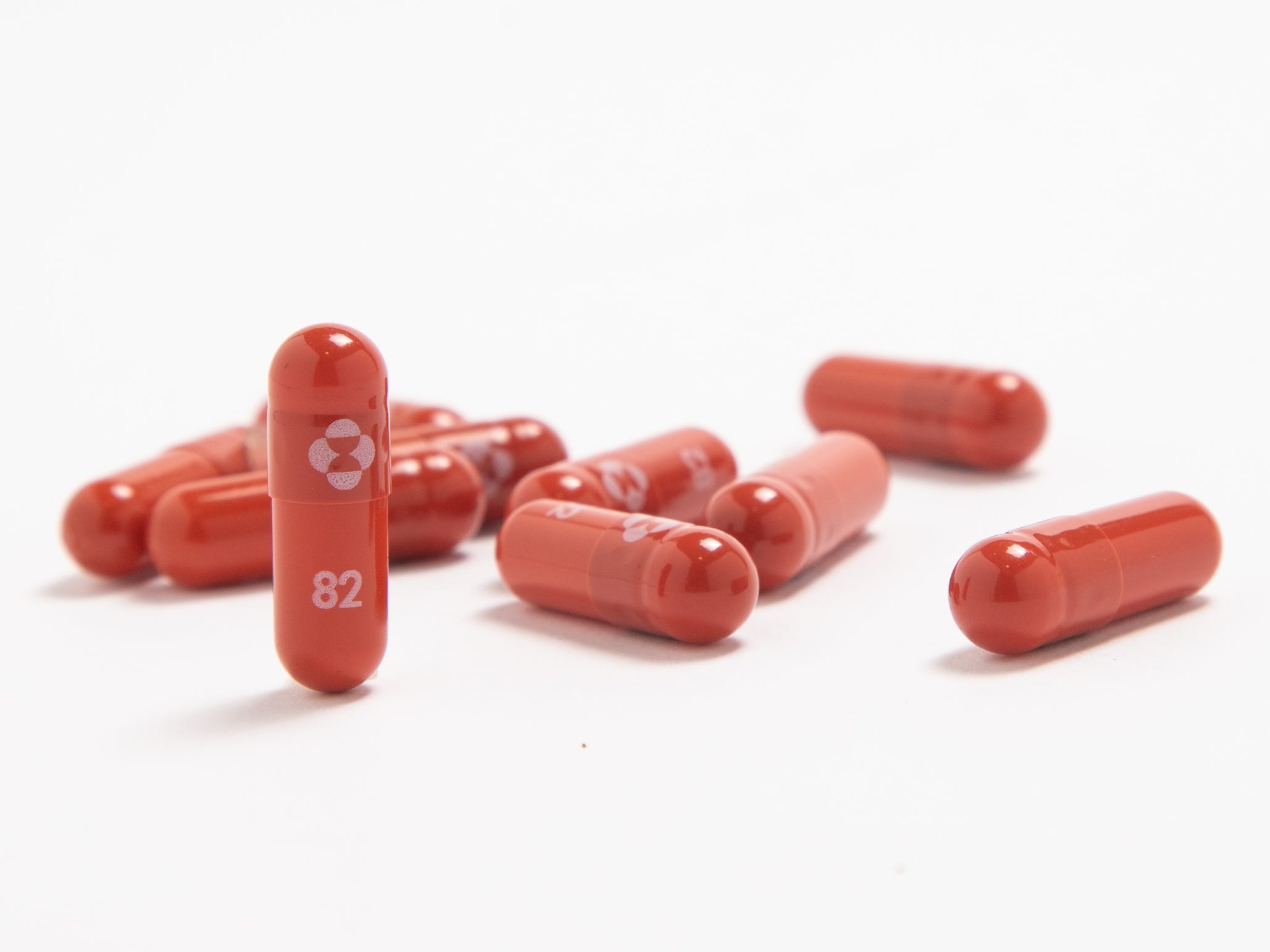
- Pfizer's experimental COVID-19 pill decreased the risk of hospitalization and death, a new study found.
- "Our ability to stop living in fear is now within reach," Pfizer's chief scientist Mikael Dolsten told Insider.
- The New York drugmaker plans to apply for emergency authorization as soon as possible.
Pfizer's experimental coronavirus pill slashed the risk of hospitalization and death by 89% among high-risk people recently infected with COVID-19, the New York drugmaking giant said Friday.
The landmark result raises the possibility there could soon be multiple COVID-19 pills available for patients, as the drugmaker Merck has also recently announced positive results with its own antiviral pill, molnupiravir. The treatments appear poised to play a major role in addressing the pandemic, supplementing vaccinations by lowering the risk of severe disease for people who are infected.
"Our ability to stop living in fear is now within reach," Mikael Dolsten, Pfizer's chief scientific officer, told Insider.
"This should really break the fear, reduce the tremendous burden on hospitals, and the risk that, if you get infected, you'll end up in a hospital and die is statistically becoming smaller and smaller and almost non-existent," he added. "It's a huge medical advance for humanity."
Pfizer expects to produce more than 180,000 treatment courses by the end of 2021 and at least 50 million more courses in 2022. A spokesperson said they are in the process of expanding capacity and plan to update these numbers in the coming weeks.

Pfizer
Pfizer touts 'extraordinary efficacy' result combined with good safety profile
Pfizer's antiviral, which the company plans to name Paxlovid, is a a protease inhibitor designed to block an enzyme that plays a key role in the virus' copying process. The drug is given with a low dose of ritonavir, another antiviral that helps Paxlovid last longer in the body. The study had volunteers take three pills every 12 hours for five days - two pills containing Pfizer's antiviral and one pill of ritonavir.
An early look at the study's results included data from 774 adults who enrolled, were at high risk of severe COVID-19 and were recently infected. Volunteers were randomly assigned to get Pfizer's antiviral or a placebo. Among those taking Pfizer's drug, less than 1% were hospitalized and none died. In the placebo group, about 7% of people were hospitalized and there were 10 deaths.
Overall, the impact is an 89% reduction in hospitalization or death for patients who took Pfizer's drug within three days of symptoms. For those that took the drug within five days of symptoms, the benefit was 85%, Dolsten said. In both cases, the drug offered 100% protection from death in the study.
The results were described in a Friday morning press release and have yet to be published in a peer-reviewed medical journal.
"I would say this is as close as you can come with an antiviral to short-term, cure-like outcomes," Dolsten said, adding he was expecting a good antiviral to show 70% or more efficacy. "It's an extraordinary effect."
Pfizer is stopping its study early due to the strong results, and the company is planning to apply for emergency authorization with US and global health regulators as soon as possible.
The safety data also appears promising. Most reported side effects were mild, and the placebo group actually had higher rates of serious side effects.
The 89% risk reduction is greater than what Merck's molnupiravir showed in a similar study focused on high-risk COVID-19 patients. Molnupiravir reduced the risk of hospitalization or death by about 50%. The FDA is now reviewing molnupiravir, and UK authorities became the first country to approve the treatment on November 3.
Questions remain on resistance and benefit for vaccinated

Merck
Despite the promising results, there are still some unanswered questions.
Pfizer and Merck both excluded people who received a COVID-19 vaccine from their studies, making it unclear if vaccinated people will also see a meaningful benefit from taking the pills if they get COVID-19.
Pfizer is running additional studies that include vaccinated people. Dolsten said he is optimistic they will have positive results early next year for these studies. The company is also studying whether the pill could be used to prevent infections and illness in the first place as a prophylactic.
Some scientists are also concerened about COVID-19's ability to mutate, and if that could make antivirals weaker over time. If they are widely used, the pills could potentially lead to the virus developing resistance to the treatment.
But Dolsten said he's not worried about the risk of resistance anytime soon.
"I don't expect for the next many years - five, seven years - there will be resistance problems," he said, adding that Pfizer is looking out for that possibility further down the line.

